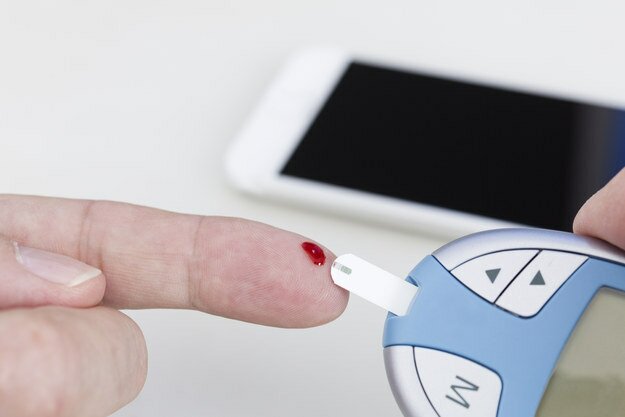Don’t Trust Your Smartphone To Calculate Your Insulin
Don’t Trust Your Smartphone To Calculate Your Insulin
Insulin-calculator apps, like the vast majority of health-related apps, are not regulated by the FDA.
A couple years ago, Kit Huckvale, a researcher at Imperial College London, noticed an increasing number of apps that purported to help diabetics track and manage their insulin levels. Which made sense to Huckvale: Though insulin dose calculators already exist as stand-alone devices, smartphones are portable, convenient, and ever-present. “There’s a really good a priori case as to why … a mobile device would be good for health,” he told BuzzFeed News. “They’re always carried, they’re always on. If something happens to you, it could be something you turn to. That’s particularly relevant for insulin calculators — it’s something you have to do at mealtimes.”
But Huckvale, a clinician by training, was curious about these apps’ accuracy and efficacy — especially because they, like the vast majority of health-related smartphone apps, are not regulated by the Food and Drug Administration. So in 2013 and 2014, he and his colleagues downloaded 46 iOS and Android apps that claimed to help users calculate how much insulin to take before a meal to cover the expected blood-glucose increase. The apps let users enter the amount of carbohydrates they planned to eat and then calculated the dosage needed to offset the subsequent spike in blood sugar.
In results published in May, Huckvale’s team discovered that most apps yielded a surprising amount of errors — some small, some significant. While most of the apps came with a disclaimer, less than one-third detailed how their calculations worked, which made it hard to know if they were correct. More than 90% of the apps failed to block clear numerical errors — like extremely high insulin doses or blood sugar levels — and more than half generated a calculation even when they weren’t given enough data to work off of. Two-thirds gave potentially inappropriate dose recommendations.
In fact, only one of the 46 apps was issue-free by the study’s criteria. (Huckvale declined to name the app, saying the point wasn’t to single out apps but to examine the category as a whole.) Most insulin dose calculator apps, the researchers concluded in no uncertain terms, “provide no protection against, and may actively contribute to, incorrect or inappropriate dose recommendations that put current users at risk of both catastrophic overdose and more subtle harms resulting from suboptimal glucose control.”
To be fair, Huckvale told BuzzFeed News, “a lot of individuals will have lots of experience managing insulin, and they’ll probably reject a really silly insulin dose.” But, he said, it’s possible that “some individuals could experience immediate harm because an app gives a false recommendation.” And the stakes of that harm is high: An insulin overdose can lead to dizziness, headaches, and nausea at best — and at worst, coma and seizures.
Though the FDA may soon re-evaluate how it polices insulin apps, these are far from the only health apps that go unregulated by the FDA. Some of these apps, which number in the thousands, have been found to give misinformation for conditions as wide-ranging as cancer, skin lesions, colorectal disease, and reproductive health, putting unsuspecting consumers at risk of harm.
In 2013, researchers tested four skin cancer diagnosis apps, which analyzed pictures of users’ moles, and found that three missed at least one in three melanomas. In February, the Federal Trade Commission fined two companies behind apps that purported, without scientific evidence, to calculate users’ melanoma risk based on a picture of their skin. (A third such company settled with the agency today.) In 2011, the pharmaceutical giant Pfizer withdrew a rheumatology calculator app after discovering that its swollen-joint measurements — based on user-reported data —were faulty. In addition, the many apps that track menstrual cycles and fertility are virtually un-vetted by experts, and only one-third of colorectoral disease apps involve medical professionals, a 2012 study found.
As smartphones become increasingly entwined with all our activities, from banking to shopping to socializing, and as the quantified-self movement marches on, more and more people are downloading health apps: In 2013, the total number of health apps downloaded from the Google Play store alone topped 660 million times. “If you have an app that’s inexpensive, that somebody believes will lower of the cost of health care, there’s going to be a certain percentage of the population that’s going to be swayed by that and say, ‘You know what, I’m going to give that a try,’” said David Rosen, a health law attorney at Foley & Lardner LLP.
Read more by clicking HERE
Pin It

